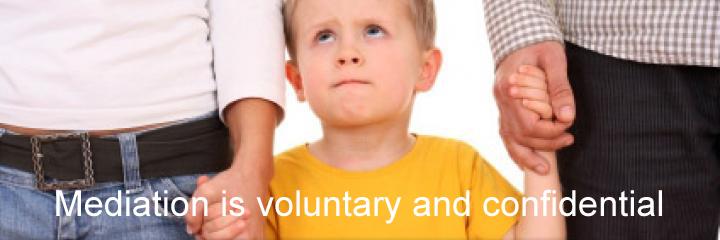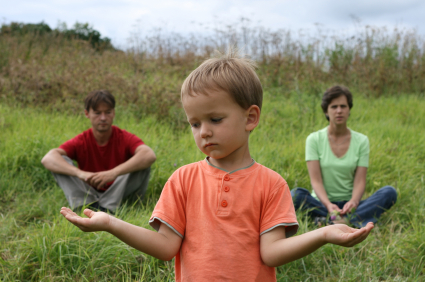From Kristina Kuzmic: ” Some stories I share with you feel more personal than others. Some stories I’m really protective of because of the impact they’ve had on my life, and in turn, on the lives of my children. This is one of those stories.
Ever since I opened up about the struggles I went through years ago, after my divorce, the question I get asked the most is: What was your turning point? Here is my answer… ”
Articles Posted in Divorce Coaching
Illinois Divorce: High Conflict Emails
The article below was written by the author of “Splitting,” the landmark book on divorcing a Borderline or Narcissist. I wrote the foreword to the first edition of “Splitting,” and have admired the work that Bill Eddy has done since that time in the field of High Conflict Divorce. Here’s an excellent article that discusses high conflict communications, and the BIFF response.
Hostile email, texts and other electronic communications have become much more common over the past decade.When people are involved in a formal conflict (a divorce, a workplace grievance, a homeowners’ association complaint, etc.) there may be more frequent hostile email. There may be more people involved and it may be exposed to others or in court. Therefore, how you respond to hostile communications may impact your relationships or the outcome of a case.
Do you need to respond?
Illinois Divorce Lawyer: Divorce Planning
2016 brings to Illinois a revised and amended Marriage and Dissolution of Marriage Act. The new Act brings some substantive changes to the way that divorce and custody is adjudicated in Illinois, but the guideline advice for preparing for a divorce remains steady. If you find yourself headed for divorce, you should consider taking the following steps to protect and prepare yourself:
Know Your Assets & Debts – Make an effort to summarize your important assets and debts, and if you have been kept in the dark about what your marriage holds by way of assets and retirement plans, talk to my firm about the use of discovery at the beginning of your case to get at these items. If you have assets that you owned before the marriage, or that were acquired by way of inheritance or estate plan gifting, be sure to segregate these gifts or bequests from your “marital basket” of accounts.
Maintain Behavioral Balance – In other words, don’t make impulsive changes or purchases, or begin a path of active dating while the divorce is in process. Starting a divorce case puts each party under the view and control of the Court; this can be an advantage in gaining control over, for example, assets being wasted by the other spouse, but this change also puts a premium on good behavior. Don’t use social media as a confessional or bully pulpit to bash your spouse. Check the security of your email and social media accounts, and if you have any doubts about the integrity of your email, talk with my firm about steps you can take to prevent keystroke logging ( see https://en.wikipedia.org/wiki/Keystroke_logging ) or email hacking.
Kane County Divorce: Approaches to Healing: the Unexpected Divorce
One aspect of my practice is helping my clients manage what can be one of the biggest traumas in life….an unexpected divorce. As a divorce and child custody attorney, I am not involved in the practice of therapy, but any experienced and dedicated lawyer in this filed understands that one has to be mindful of the traumas and difficulties our clients face in managing an unexpected divorce. Part of this caring and management involves coaching, support, caring, and, for some, a referral to a skilled clinician for therapy.
Canadian therapist Justice Schanfarber just published an interesting article on the healing process that can be undertaken when the trauma of a divorce arrives:
” The end of a relationship or marriage can feel like death. Grief is an appropriate response. This means anger, sadness, denial might all arise.
Divorce Loneliness during the Holidays: 10 Ways to Help
I have written in the past during the holidays on the subject of creating new traditions; the idea is that during or after divorce, creating new activities and places to celebrate the holidays with yourself and the children, versus lamenting the loss of past traditions. Trading lamentation for adventure takes work, just as working oneself out of a sense of post-divorce loneliness during the holidays takes effort. I found this article on PsychCentral today on 10 ways to combat the sense of loneliness…this article may be particularly useful during these holiday periods for people going through a divorce or separation.
” Have you ever been lonely in a crowd? Have you ever been perfectly content all alone? Me too. And I have also suffered from loneliness.
Loneliness is a complex mental and emotional phenomenon that has at its base a powerful emotion that has survival value for children. All of us have experienced some degree of abandonment, if only for a short time, and remember the painful and scary feeling that goes along with it.
DuPage Divorce: Mediation
One of the interesting aspects of divorce litigation is the requirement that parents mediate their child custody issues, with the judge assigning a mediator in the initial weeks of the case should the parents not have an agreement as to legal custody (joint vs sole) and parenting time. In some cases mediation is beneficial. I am a trained mediator, but I can also say that mediation is not a panacea, it is not always a process that results in resolution. Many times, mediation fails. So, when the parents are bitterly oppositional, or when the issues are just not amenable to mediation, what should a parent do?

One piece of advice that I give my clients is to be, along with a good spokesperson for their views, a good listener. Many divorces feature parents that simply don’t want to talk to each other, and avoid interaction at all costs. Even when mediation is not likely to result in global agreements on custody and parenting time, it can be a time to listen to what the other parent is verbalizing to the mediator. New facts might be learned. Partially hidden agendas might be revealed. Concessions might be explored.
Keep in mind…everything said in mediation is private and none of the matters discussed in mediation can be used in court.
Kane County Divorce Lawyer: Managing Children in the Early Stages of Divorce
I had a conversation today with one of my new clients about how to manage the emotions of the minor children during the initial stages of the divorce. An article from Dennis Ortman is helpful and I have cited it below. I do feel that along with parents learning how to manage the worries and questions from minor children in the first weeks of a divorce, parents can truly benefit from reaching out to support groups for children through local churches, or accessing a therapist that works with children in divorce.
Divorce can be an emotionally and psychologically difficult process for adults, leaving the parents with few resources to channel to the children. In these cases, it’s best to reach out to other resources in the community to provide emotional and psychological support to children, as well as to give them a forum, independent of the family circle, to process their anxieties, worries and concerns.
——————–
Kane County Divorce: Women and Financial Life After Divorce
Studies confirm that women can suffer economically much more, over time, than men after divorce. You may be receiving child support and spousal support (maintenance), or a combination of the two called in Illinois “unallocated support,” but maintenance is sometimes periodic and reviewable, and you likely cannot rely solely on both these income sources to sustain you and your children. Men that have careers tend to, over time, increase their incomes and save more for future years, while women tend to struggle to maintain an adequate financial roof over their heads over time. Because Illinois’ Supreme Court put a premium on forcing courts to “break all entanglements” after divorce, this has lead some judges to terminate spousal support after but a few years post divorce. At that point, the woman is on her own, financially, in the world. Being mindful of this fact, and preparing for it, is important.
If you are working part-time, see about converting to full-time if your child care needs can be met appropriately and economically. If you need to, update your credentials at a local university or community college. Other suggestions include:
-Positions with work hours during school hours
DuPage County Divorce Lawyer: Kids and Divorce
Many complex divorce and custody cases involve mediation sessions, appointments with custody evaluators and guardians ad litem, along with stressful court hearings. Sometimes neglected in the process of divorce is consideration for how the children in the family are faring while the divorce is being processed. In my practice, I want my clients to be actively attentive to the emotional and psychological needs and changes that appear in the children, and to be responsive to those needs and changes. Sometimes a good clinician, such as a counselor or therapist, can be very beneficial for children in divorce; if the kids can weather the divorce well, the family as a whole has a better outcome.
So, what kinds of behaviors or appearances should a parent be looking for in their child? Rosalind Sedacca, CCT, has just written on this issue and her checklist is very useful. Check to see if:

1. They look, behave and talk as they always have.
Kane County Divorce: Divorce Mediation
Is Divorce Mediation for You?
Are you wondering:
• What is the most informed way, at the least expense, to get divorced?
 Illinois Divorce Lawyer Blog
Illinois Divorce Lawyer Blog

